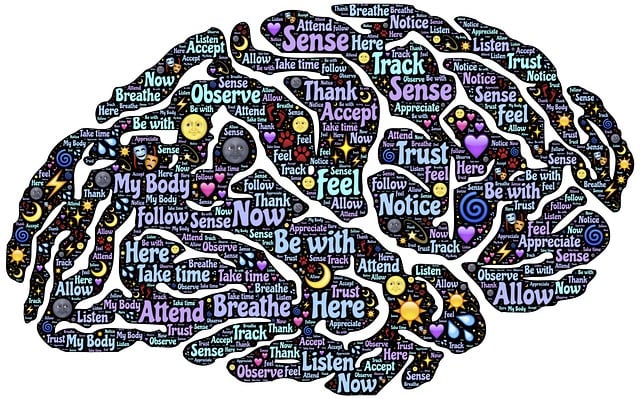Cultural sensitivity is paramount in therapy for young children dealing with relationship issues, as it facilitates trust and understanding between therapist and client from diverse backgrounds. By incorporating cultural perspectives into assessments, treatments, and communication strategies, mental health professionals create safe spaces where children feel validated, leading to more accurate diagnoses, personalized plans, improved emotional well-being, and enhanced therapeutic outcomes. This approach considers how different cultures shape family dynamics and communication styles, ensuring culturally responsive care that respects unique backgrounds.
In today’s diverse society, cultural sensitivity is paramount in mental healthcare. Understanding cultural diversity shapes effective therapy for young children and relationship issues across various contexts. This article explores these critical aspects, offering insights into navigating cultural sensitivity in practice. We delve into the impact of cultural awareness on young children’s therapy, strategies for practitioners, and addressing relationship problems within different cultural contexts. By embracing cultural sensitivity, mental healthcare professionals can provide more inclusive and successful support.
- Understanding Cultural Diversity in Mental Healthcare
- The Impact of Cultural Sensitivity on Young Children's Therapy
- Addressing Relationship Issues Across Different Cultural Contexts
- Strategies for Practitioners: Navigating Cultural Sensitivity in Practice
Understanding Cultural Diversity in Mental Healthcare

In today’s diverse society, mental healthcare professionals must embrace cultural sensitivity to provide effective therapy for young children facing relationship issues. Cultural diversity enriches communities but also presents unique challenges in the therapeutic process. Understanding and appreciating different cultural backgrounds, traditions, and belief systems are essential components of quality care. This involves recognizing that every client comes with their own set of experiences and perspectives shaped by their ethnicity, religion, socioeconomic status, and other factors.
Effective communication strategies play a pivotal role in building trust between the therapist and young clients from diverse backgrounds. Mental health awareness training for professionals is crucial to navigate these nuances, ensuring sensitive and culturally appropriate interventions. Moreover, conducting thorough risk assessments that consider cultural elements helps professionals anticipate potential barriers and tailor support accordingly. By integrating these practices, mental healthcare providers can create a safe space where young individuals feel understood, fostering better outcomes in therapy.
The Impact of Cultural Sensitivity on Young Children's Therapy

Cultural sensitivity plays a pivotal role in the effectiveness of therapy for young children, especially when addressing relationship issues. Understanding and respecting a child’s cultural background can significantly enhance their therapeutic experience. Children are more likely to open up and engage with therapists who demonstrate an appreciation for their unique cultural perspectives, traditions, and values. This fosters trust, making it easier for them to express their feelings and challenges, which is crucial for accurate diagnosis and tailored treatment plans.
When dealing with young clients, culturally sensitive practices enable therapists to incorporate strategies that promote mood management, emotional regulation, and confidence boosting activities relevant to the child’s cultural context. By doing so, therapy becomes more meaningful and effective, allowing children from diverse backgrounds to navigate their relationship issues with support tailored to their needs while also preserving and celebrating their sense of self.
Addressing Relationship Issues Across Different Cultural Contexts

Cultural sensitivity is paramount in mental healthcare, especially when addressing relationship issues that often manifest in therapy for young children. Different cultural contexts shape family dynamics and communication styles, influencing how parents and children express and cope with emotional distress. For instance, some cultures prioritize collective over individualism, which can affect the child’s willingness to share personal feelings or the parent’s approach to seeking help. Understanding these nuances is crucial for fostering trust and effectively tailoring therapy sessions.
Mental health professionals must be adept at navigating these cultural differences to ensure successful risk management planning. By incorporating strategies for stress management and emotional healing processes that resonate with diverse families, therapists can create a safe space for open dialogue. This approach not only enhances the therapeutic outcome but also strengthens the bond between the healthcare provider and the family, ultimately promoting holistic emotional healing.
Strategies for Practitioners: Navigating Cultural Sensitivity in Practice

Cultural sensitivity is a cornerstone for practitioners in mental healthcare, especially when treating young children with relationship issues. Navigating this complexity involves a blend of active listening, cultural competency training, and understanding the nuances of diverse communities. By integrating these strategies, therapists can create a safe and supportive environment that respects and validates clients’ backgrounds.
For instance, professionals should conduct thorough risk assessments for mental health professionals, considering potential cultural barriers to treatment. This may include language differences, family dynamics unique to certain cultures, or specific beliefs about mental illness. Incorporating community outreach program implementation strategies can also foster trust and accessibility, ensuring that therapy for young children with relationship issues is not only effective but also culturally responsive and inclusive.
Incorporating cultural sensitivity into mental healthcare practice is no longer a consideration but a necessity. As our society becomes increasingly diverse, understanding and respecting cultural differences can significantly impact therapy outcomes, particularly when treating young children and addressing relationship issues. By adopting strategies that foster inclusivity and adaptability, practitioners can create safe spaces for clients from various backgrounds, ensuring effective and culturally responsive care. This approach not only enhances therapeutic outcomes but also contributes to building stronger, more connected communities.









